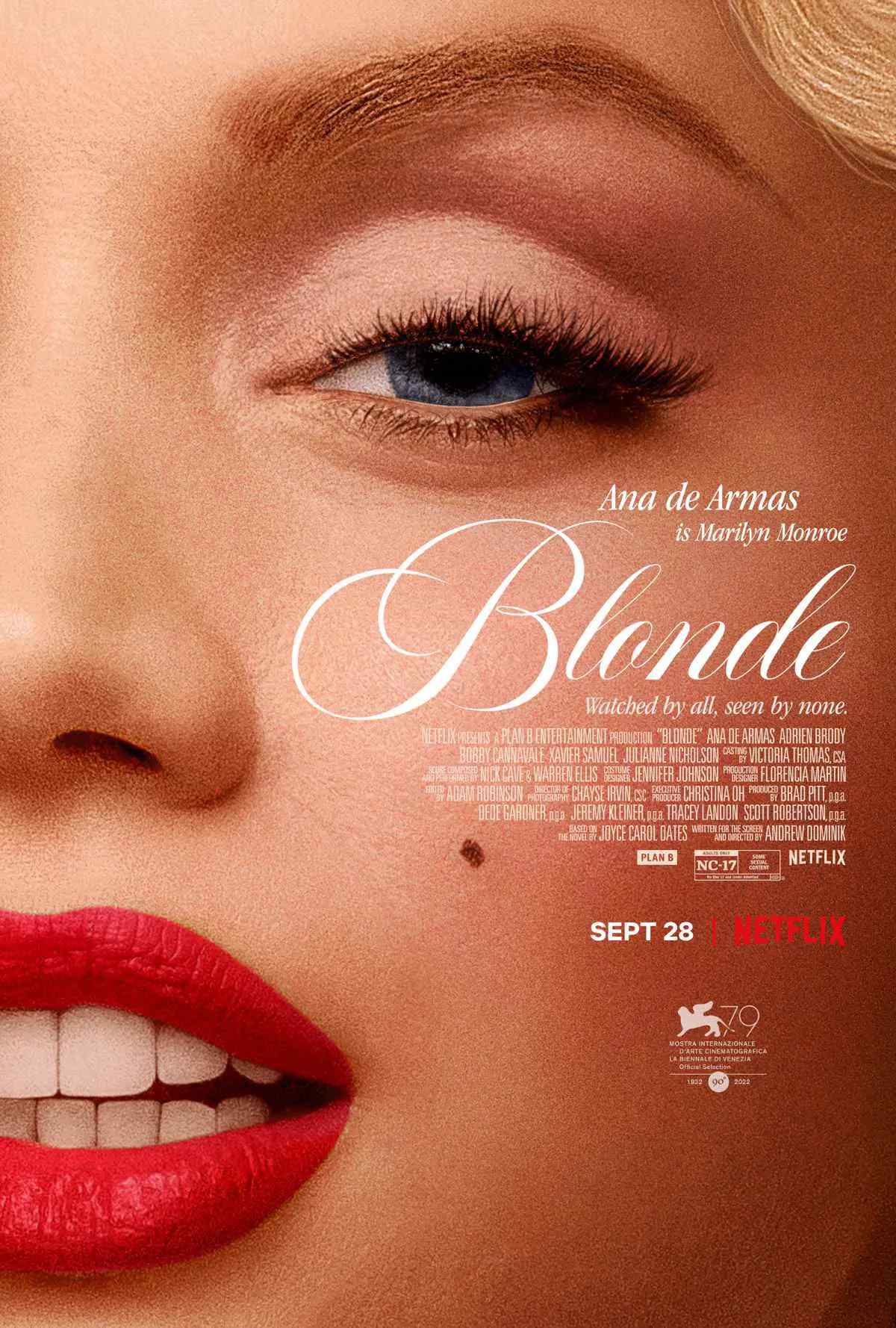Blonde Review: Ana de Armas Is Marilyn Monroe
Simultaneously explorative and deeply reductive, Andrew Dominik’s adaptation of Blonde delves as deeply into Marilyn Monroe’s (Ana de Armas) battle between her public and private personae as anyone ever has, but the film only manages to find tired Freudian pop answers beneath the sediment.
Joyce Carol Oates’ semi-biographical novel (Order Now) provides a moderate starting point, turning Monroe’s life into one of allegory with descriptives replacing people for the characters in her life, and Dominik builds on it with imaginative visual fireworks and an all-in performance from Ana de Armas.
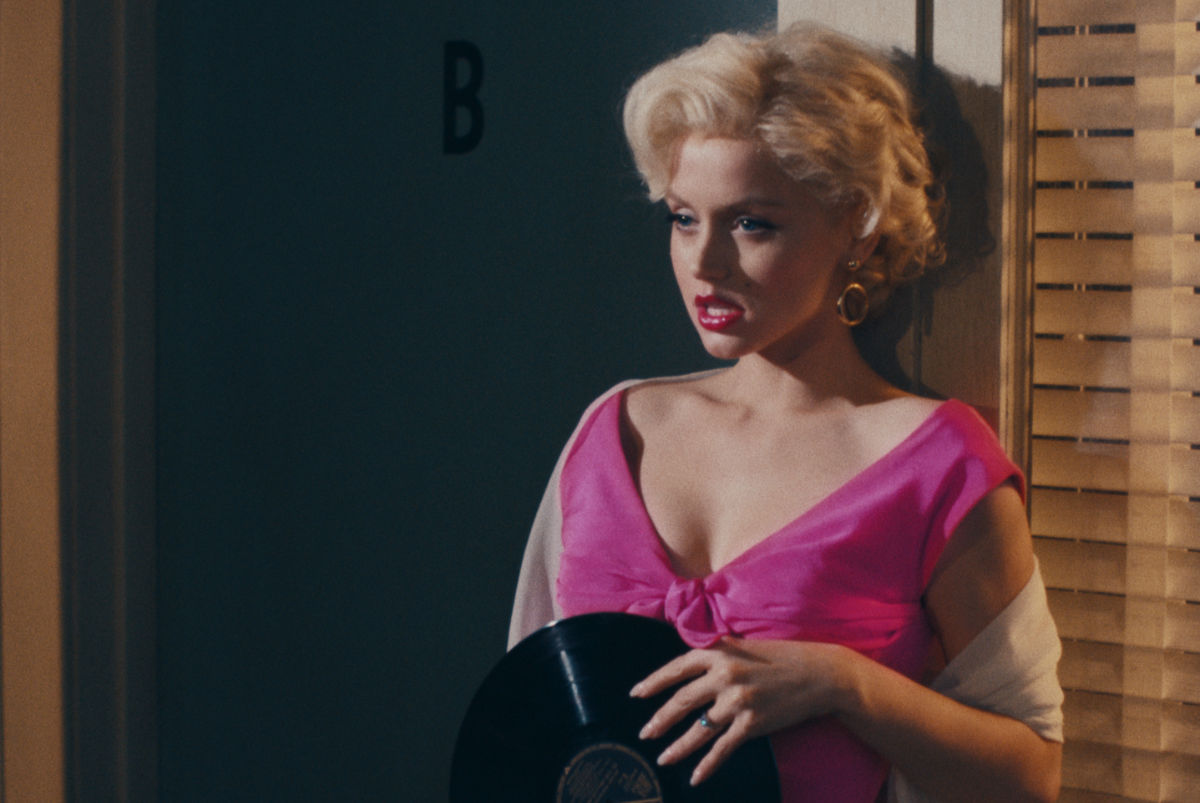
Rather than fill in the details of Oates’ sketch, Dominik spends more time on visual invention and poetic rumination, flittering in and out of Monroe’s life like an itinerant butterfly and letting de Armas take the lead. But what a lead it is, finding real humanity and genuine inner life in an ultimately unknown quantity, a self-described hollow shell the world projected itself onto.
And what invention it has as well! It would be easy to say Dominik was more interested in how he could portray Monroe’s life than what was in it, but that would also be hopelessly reductive. It’s clear from the outset that Dominik and his team want to push the edges of what a period piece and a biopic could be as he plays brusquely with color, format, and montage.
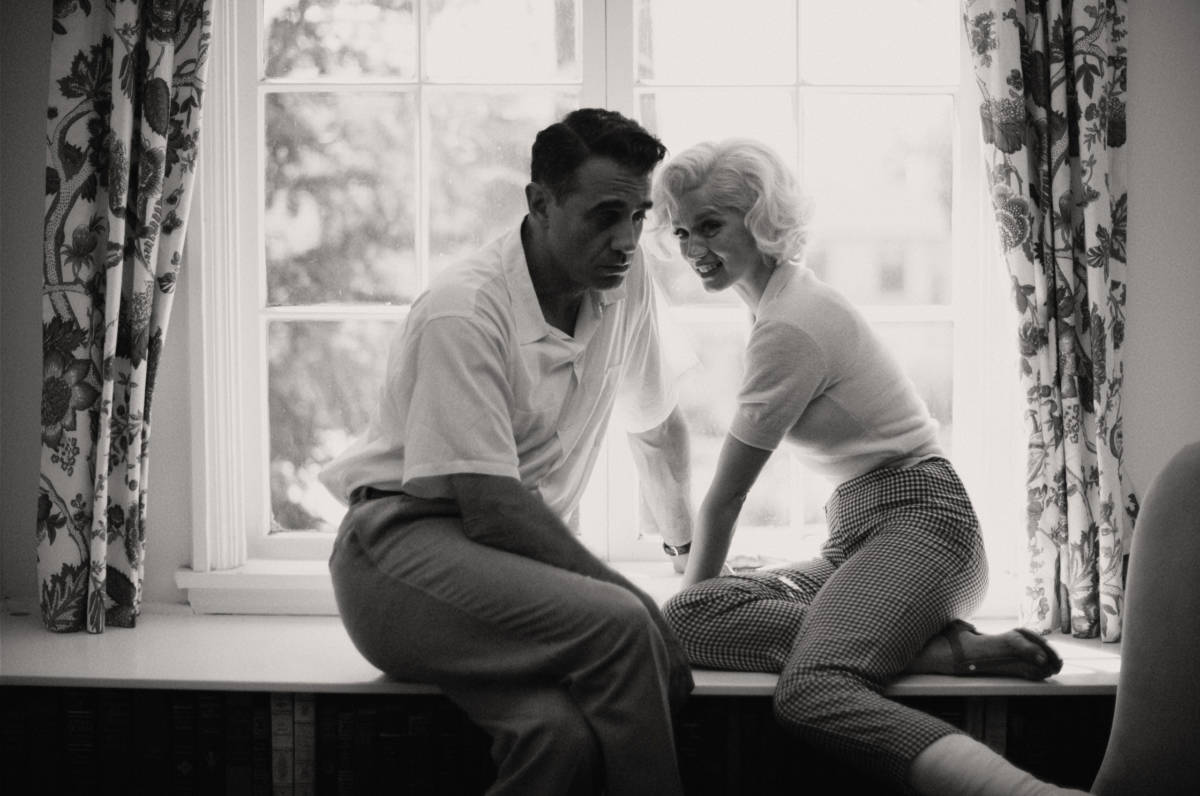
Just the way film expanded to cinemascope when television appeared, now that peak TV has begun to use widescreen everywhere, the film has returned to full frame images; Dominik keeps most of his story cropped into that old box and reminds us that it is not a ‘lesser’ look but just a different one that can contain interesting composition on its own.
That doesn’t stop Dominik from flipping back and forth between full frame and scope and color and black and white, replicating the confusion of her inner self with a chaotic visual theme. He frequently smears light across the screen, prettying up the chaos below, similar to the way Marilyn’s makeup artist keeps putting a brave face on her no matter how messy her life gets.
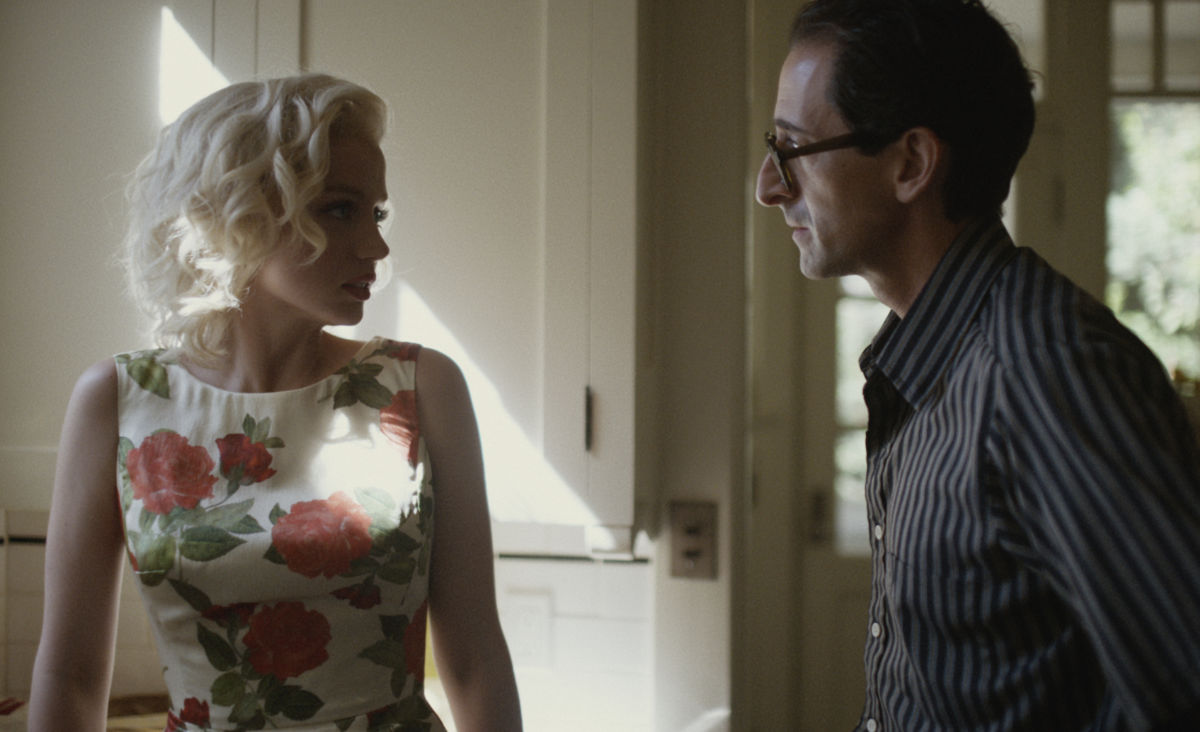
Or rather, Norma Jean’s life, as she frequently reminds everyone. Marilyn Monroe is merely a construct created by the Hollywood machine to create a star. A name applied to blonde hair and an outgoing persona Norma Jean barely recognizes when she sees it on a billboard or up on the big screen.
The focus on Marilyn as a mask and having de Armas play the Norma Jean beneath it allows her to deftly move past impersonation and into inhabitance as she tries to find some sort of balance between the two. Like Persona‘s battling star and nurse, Norma is at odds with the world’s perception of her but helpless to do anything but hide from it, even in her waking life.
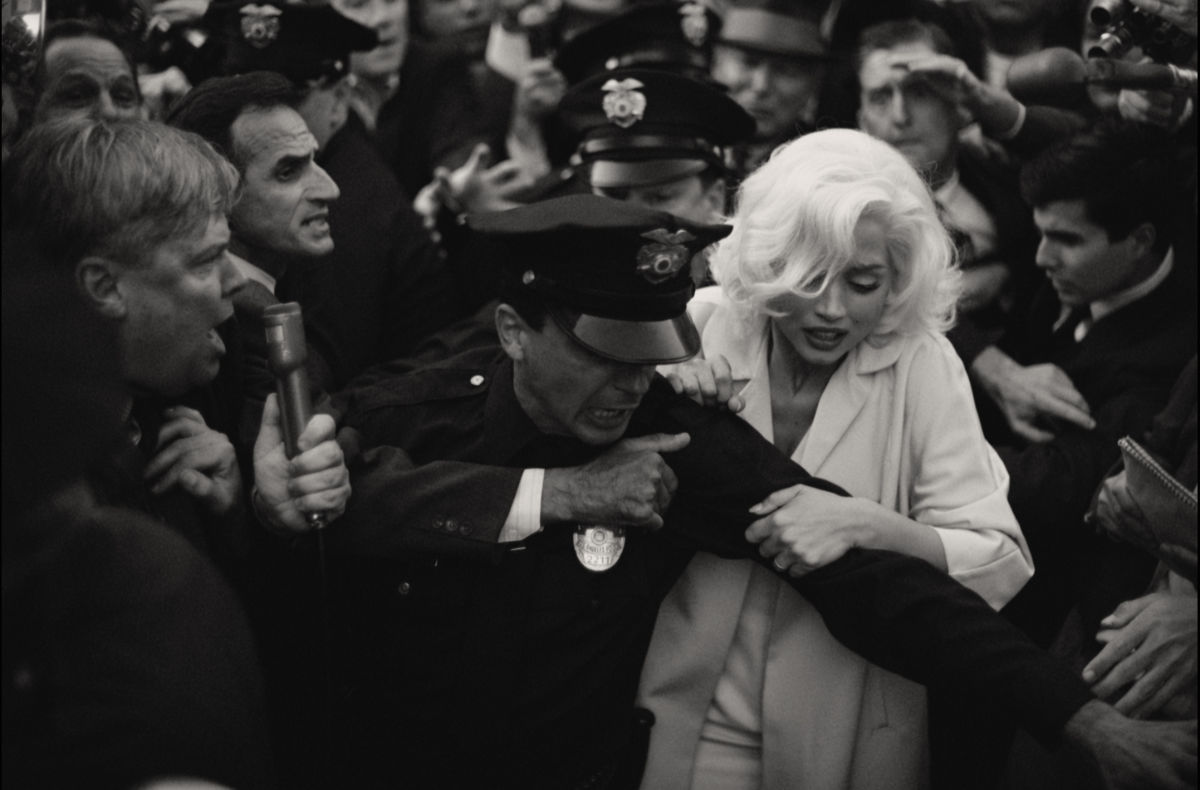
De Armas shines like the star Norma Jean played even as she falls into Dominik’s most evocative nightmares, including constant fears of failed pregnancy after she is talked into an abortion early in her career in order to make sure she is available for plumb roles.
Compared to all of the experimentation around that idea and the strength of de Armas’ performance within it, the reductivity of the idea is a wound Blonde almost can’t walk away from. All of her problems, Dominik suggests, stem from the absent father she constantly dreams of (and is tormented by via occasional letters promising reunion) and the cruel mishaps keeping her from experiencing the motherhood she longs for.
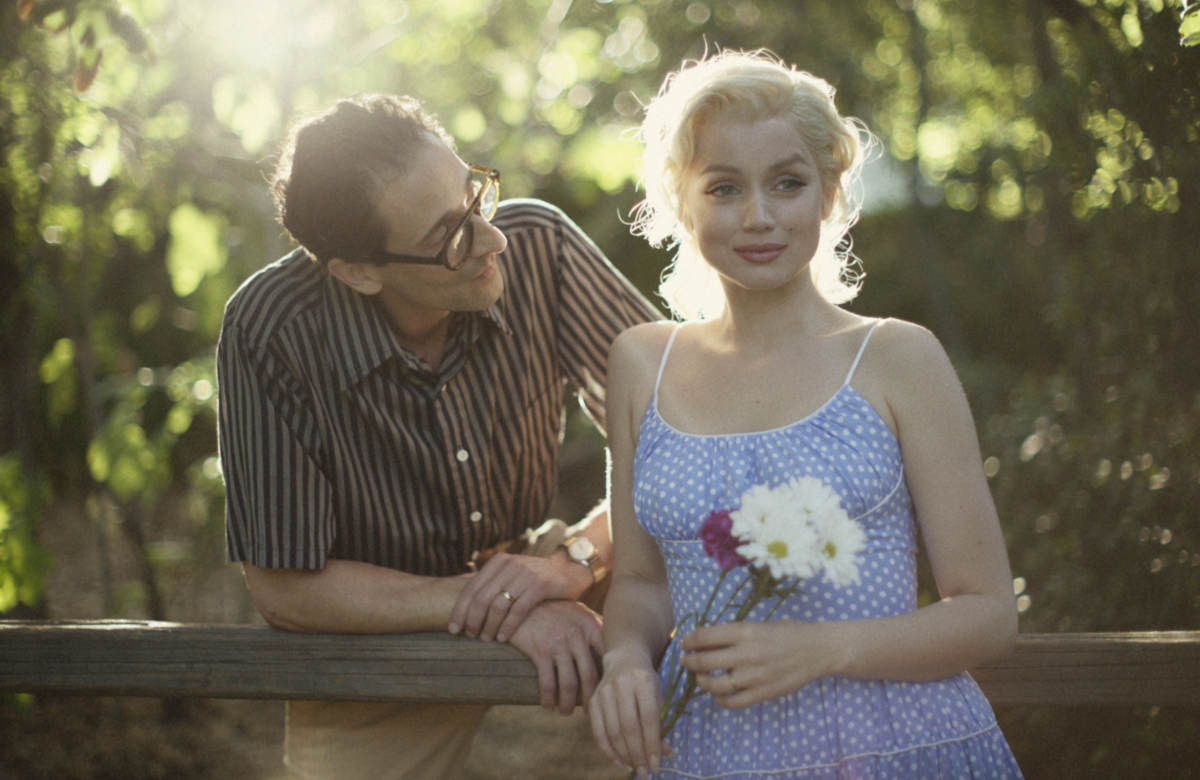
All of her fear and inner turmoil, the film suggests, could be dealt with if she could just have that familial bond she has always been denied, either through lack of children or her difficult relationship with her emotionally disturbed mother (Julianne Nicholson). It does not help that every man she meets, if not the world in general, sees her as something to be used, and Norma/Marilyn herself views herself as a passenger in her own life (complete with frequent acerbic asides, but little in the way of action).
It all may be true, but it has the stench of easy Freudian analysis that denies Norma the complex inner life she constantly strives for. Her own story treats her little better than the possessive men around her.
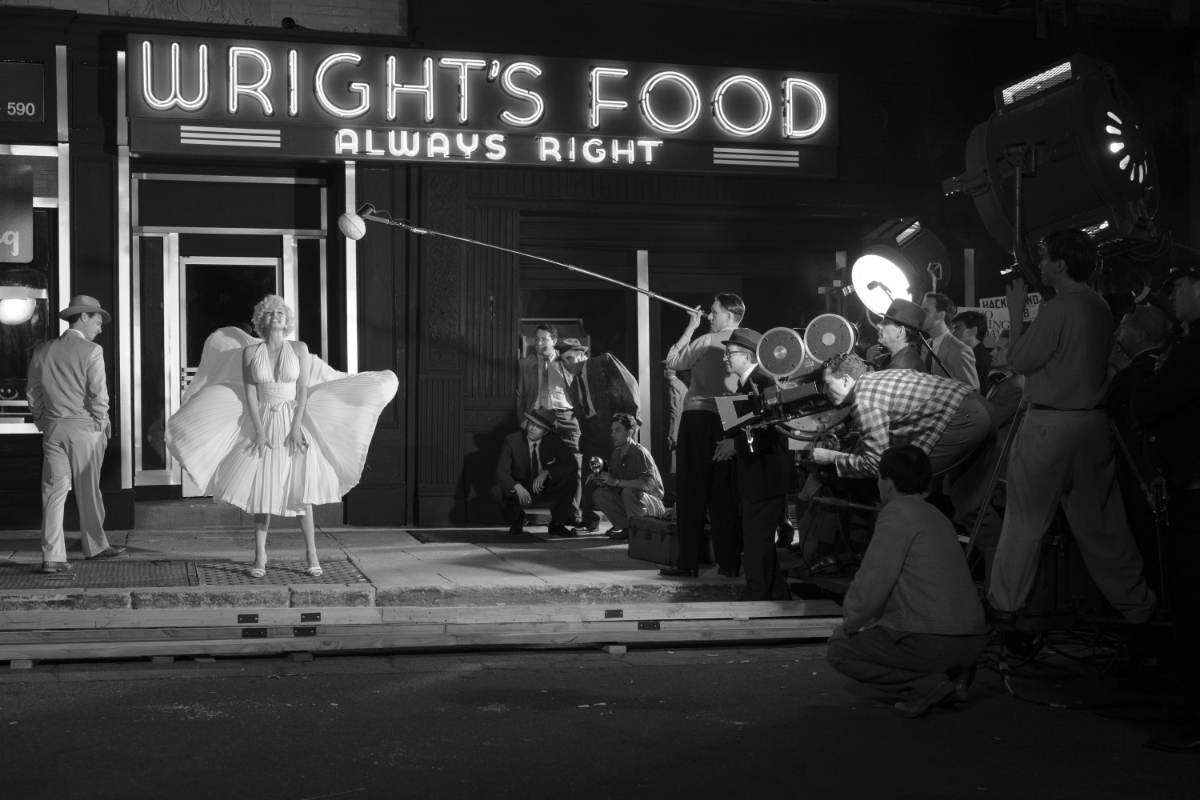
Whatever flaws in its conception, nothing can be taken away from the sheer artistic power of Blonde‘s presentation. Dominik’s visual flare, though drawn out, ignores step-by-step retelling in favor of making us feel what it was to be the classic tragic movie icon.
De Armas herself is all in, no matter how deep into Marilyn’s pain she has to delve. It’s a star-making performance and a statement of de Armas’ skill as an actress. All the pieces are there for a masterpiece; they don’t quite come together, but the journey is still worth it.
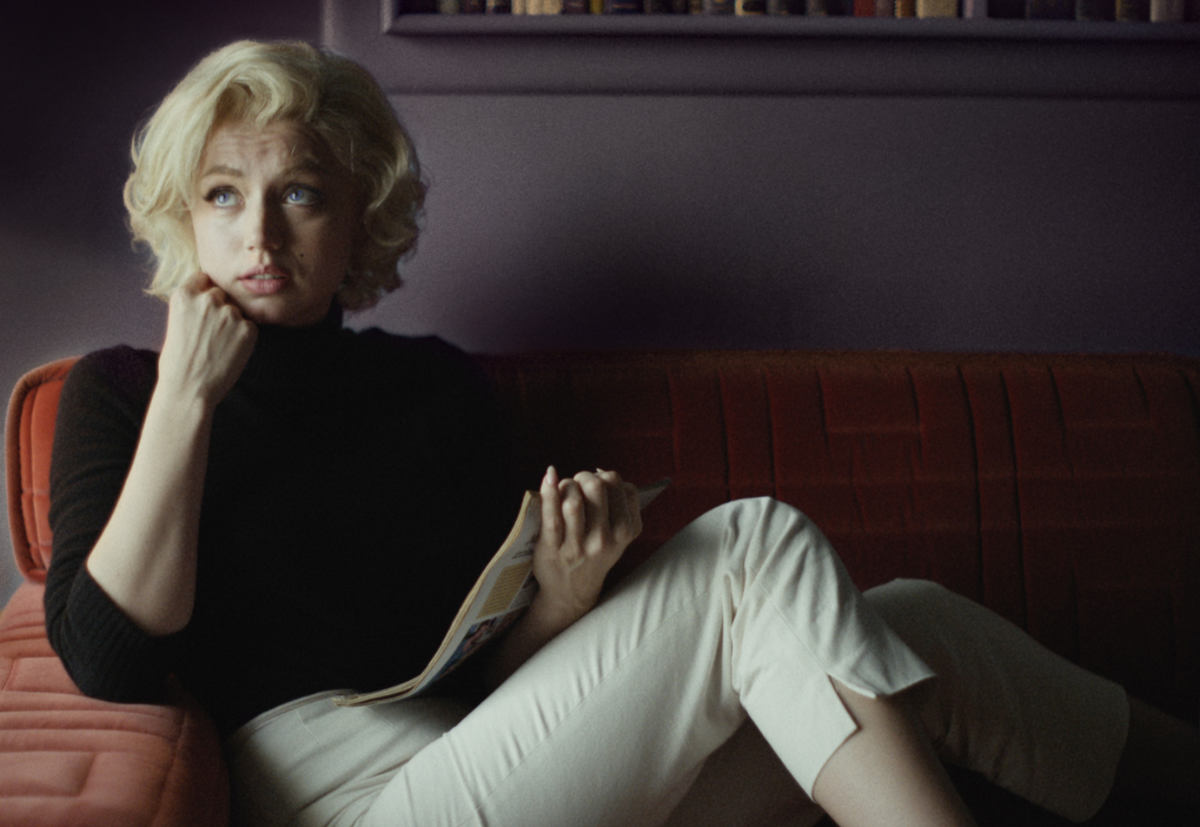
BLONDE REVIEW SCORE: 8 OUT OF 10
The film will release on the Netflix streaming service on Wednesday, September 28, 2022. The movie is rated NC-17 for some sexual content.
